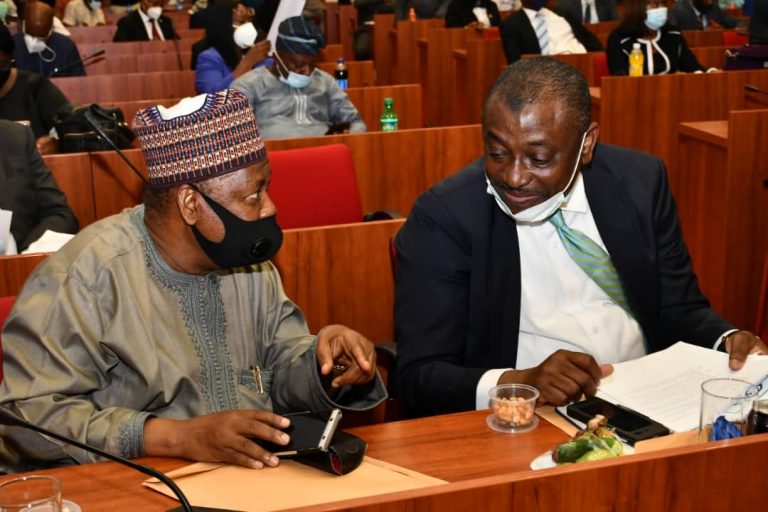To ensure the safety and stability of the nation’s financial system, the enabling laws must clearly define the roles of the Nigeria Deposit Insurance Corporation (NDIC) and the Central Bank of Nigeria (CBN) as expressed in the NDIC Act 2006 and The Banks and Other Financial Institutions Act (BOFIA) 2004.
In a presentation during the Public Hearing to amend the BOFIA Act 2004 (Repeal and Re-enactment Bill), Umaru Ibrahim, Managing Director and Chief Executive of the NDIC, wants the Bill amended to make the corporation sole liquidator of failed banks in Nigeria based on its core mandate of bank liquidation.
At the parley organised by Senate Committee on Banking, Insurance and Other Financial Institutions, he identified variances in the Bills to include overlapping mandates between the NDIC and the CBN.
Such variance, he stressed, should be clarified and reflected in the BOFIA 2020 to avoid any ambiguity in the laws governing operations of the regulators because it is specifically critical in the resolution of failing banks.
The NDIC chief executive told participants at the event of the corporation’s desire to be recognised as the primary actor in the resolution process, while the CBN intervenes in the event of systemic crisis.
In addition, Ibrahim said the corporation also seeks a role in the licensing of banks in collaboration with the CBN to ensure the necessary fit and proper checks, while establishing clearer assessment of the status of financial institutions before licensing.
Addressing participants at the Public Hearing to Repeal and Re-enactment of the Bill to BOFIA 2020 at the National Assembly in Abuja, he lamented that the Bill seems to suggest the option of the appointment of other entities in the liquidation of failed banks.
A clear delineation of roles between the NDIC and CBN, he stressed further, would strengthen the legal framework and contribute towards effective and efficient collaboration in the supervision and regulation of the Banking Sector.
The corporation also made a case for an express prohibition of insider loans, in addition to criminalising insider loans by making it an offence punishable with imprisonment and fine for directors of licensed banks to obtain credit facilities from their own banks, whether such credit facilities are secured or not.
The corporation told the legislators that there is no need for CBN approval in the implementation of supervision, control and management and distress resolution of banks as reflected in the Bill.
This, it said, constitutes the core mandates of the corporation, which it should carry out in consultation rather than with the consent of the CBN, since both institutions are independent and compliment the functions.
“Directors of banks should be held are personally liable without any limitation for the causes of the failure of their banks where they have been found to be negligent in managing the bank,” the corporation said in a statement.
Imposing penalties and persecution of various offences to serve as a deterrent to officers and directors of banks, the corporation stressed, will ensure that there is compliance with available laws and regulations in the banking industry to avoid paying stiff penalties.
Photo caption: MD/CE of the NDIC, Umaru Ibrahim, in a chat with the CEO of Nigerian Security Printing and Minting, Abbas Masanawa, during the Public Hearing on the amendment of Banks and Other Financial Institutions Act 2004 (Repeal and Re-enactment Bill, (BOFIA) 2020 at the National Assembly, Abuja.








